Search Images
Browse Content (p. 1224)
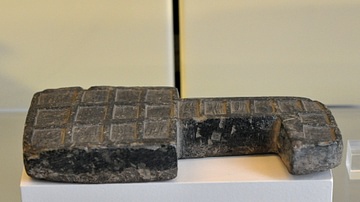
Image
Board Game from Sam'al
This board game is made of serpentine. 9th to 7th century BCE. From Sam'al/Zincirli, modern-day Southern Turkey. (Pergamon Museum, Berlin)
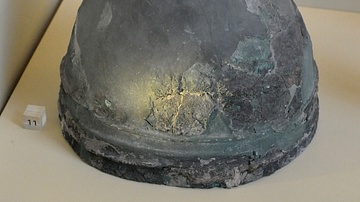
Image
Warrior Helmet from Sam'al
Pointed helmet made from bronze and iron. 9th to 7th century BCE. From Sam'al/Zincirli, modern-day Southern Turkey. (Pergamon Museum, Berlin)
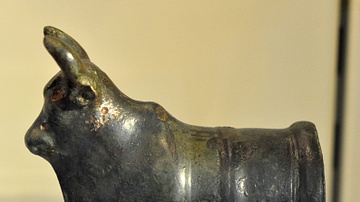
Image
Bronze Bull from Sam'al
This bronze bull was probably part of a piece of furniture. 9th to 7th century BCE. From Sam'al/Zincirli, modern-day Southern Turkey. (Pergamon Museum, Berlin)
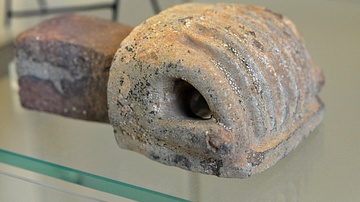
Image
Decorative Wall Console, Kalhu
A decorative wall console in the form of clenched hand. The surface is not inscribed. Similar "Hands of Ishtar" were found in Kalhu of Mesopotamia, which were used as corbels but these were inscribed. 9th to 7th century BCE. From Sam'al/Zincirli...
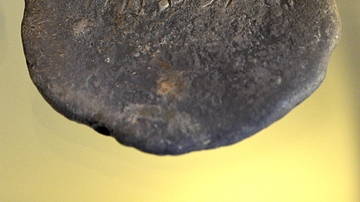
Image
Silver from Sam'al
This rounded piece of silver (which is part of a hack silver) was used as a method of payment. Its weigh is 497.38 g. The overlying Aramaic inscription mentions that this is a property of Barrakib, son of Panammuwa, Prince of Sam'al. 9th...
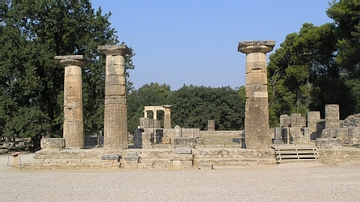
Image
Temple of Hera, Olympia
Remains of the Temple of Hera in Olympia, Greece.
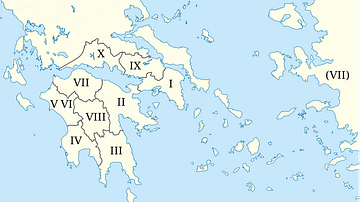
Image
Pausanias' locations in his Description of Greece
Map based on Description of Greece by Pausanias. The map shows which parts of Greece each book in the work describes.
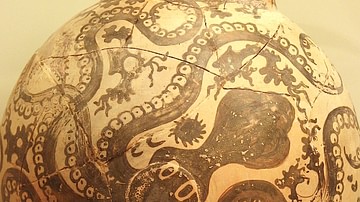
Image
Minoan Octopus
A Minoan octopus, detail from a New-Palace period (1500-1450 BCE) Cretan Clay askos with 'Marine Style' decoration, (Heraklion Archaeological Museum, Crete)
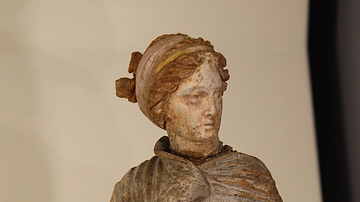
Image
Painted Figurine, Tarentum
A painted terracotta figurine of a woman wrapped in a himation. Tarentum, 3rd century BCE. (Archaeological Museum of Taranto, Italy)
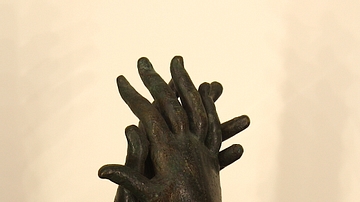
Image
Bronze Hands Nutcracker
A nutcracker in the form of bronze hands with gold decoration. 4th-3rd century BCE, Tarentum. (Archaeological Museum of Taranto, Italy)